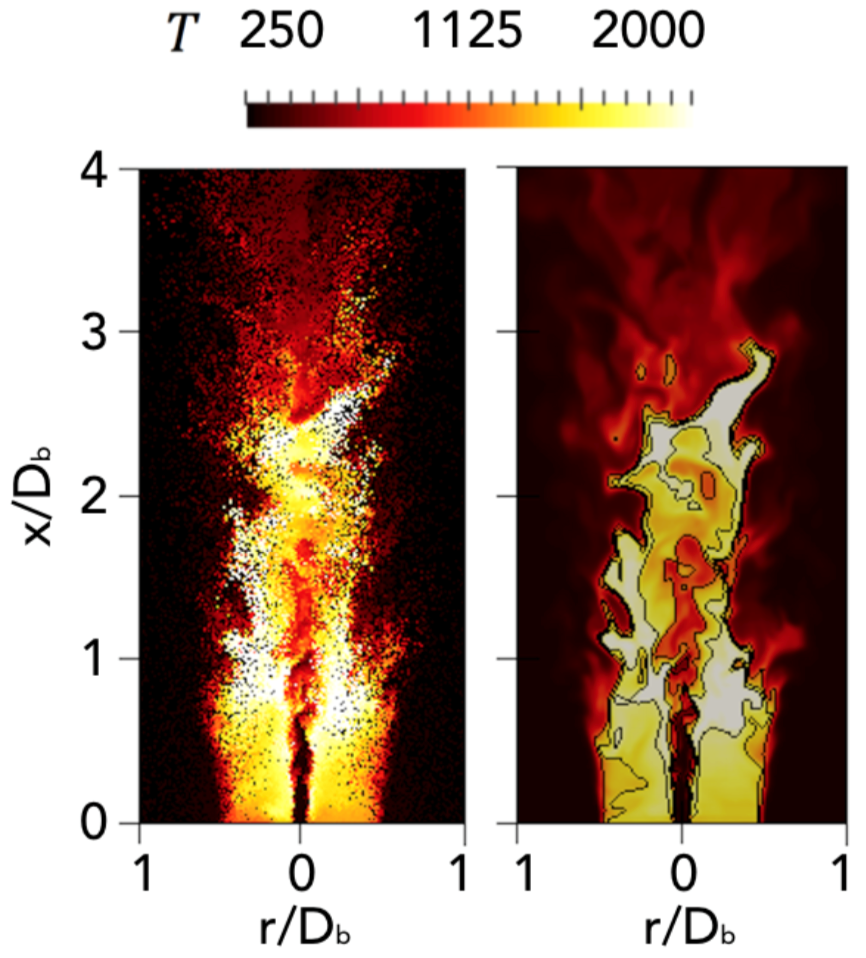
| Topic: | Sparse-Lagrangian stochastic particle methods for combustion, nanoparticle synthesis and two-phase flows |
|---|---|
| Speaker: | A/Prof Matthew Cleary School of Aerospace, Mechanical and Mechatronic Engineering (AMME), University of Sydney |
| Date: | Friday, 19 July 2019 |
| Time: | 1.00pm to 2.00pm |
| Venue: | Active Learning Classroom EA-06-07 (Block EA, Level 6) (map of NUS can be found at http://map.nus.edu.sg/) |
| Host: | Dr Zhang Huangwei |
Abstract
Stochastic computational fluid dynamics (CFD) are elegant approaches for solving continuum turbulent flow problems. Their great attraction is that they provide inherently closed formulations for non-linear, small scale processes such as chemical reactions and discrete particle dynamics. Although stochastic approaches have traditionally been considered to be computationally expensive, it is possible to alleviate this by complementing them with low-dimensional manifold and dynamic binning methods. This seminar will present recent stochastic CFD research from the University of Sydney with applications in combustion, nanoscale materials synthesis, and two-phase flows.

Figure: Instantaneous turbulent temperature fields in a swirl flame by a finite volume method (left) and a sparse stochastic Monte Carlo method (right).
About the Speaker
Associate Professor Matthew Cleary is an academic in the School of Aerospace, Mechanical and Mechatronic Engineering (AMME) at the University of Sydney where he leads the modelling research conducted by the Clean Combustion Research Group, teaches undergraduate and postgraduate courses in thermofluids and is the Director of Research. He has bachelors degrees in both Mechanical Engineering and Naval Architecture and obtained his PhD in 2005 from the University of Sydney. Cleary has held previous positions at Imperial College London, the University of Queensland and a visiting position at Princeton University.
Cleary is best known for his work on developing the multiple mapping conditioning / large eddy simulation (MMC-LES) model for turbulent reacting flows, which has revolutionised the use of stochastic particle methods through sparse (and therefore very low cost) Monte Carlo solutions. Cleary instigated and continues to lead a major opensource combustion code development collaboration, known as mmcFoam, between researchers at universities in Australia, Singapore, Germany, India and China.

